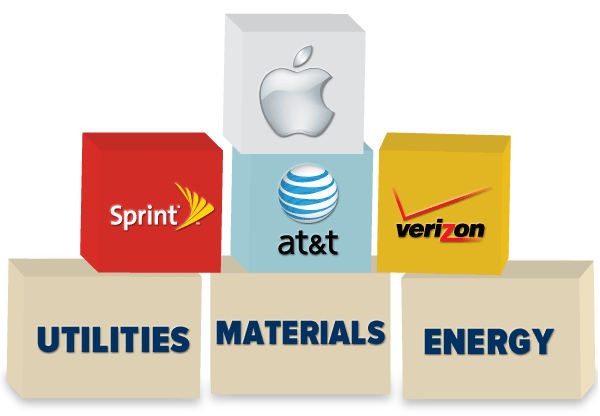After Apple (AAPL) reached $500 billion in market capitalization, it was inducted into a very elite club of businesses that have reached this size. Only Cisco, ExxonMobil, General Electric, Intel and Microsoft have made it to the $500 billion mark, says CNNMoney.
Apple’s rise in market cap has been driven by spectacular stock performance. Since October, the tech company’s stock has increased nearly 40 percent, making it the top driver of the S&P 500 rally. This increase caught the attention of many analysts, including Thomas Lee from J.P.Morgan, who declared that the moonshot rise of Apple’s stock has made the company a “sector unto itself.” At a market cap of just under $500 billion, Apple represents 3.7 percent of the S&P 500 Index. Lee says the “sheer magnitude” of the company’s weighting means that…
- Apple is the largest cyclical stock in the S&P 500
- Among 65 industries, Apple would be the 6th largest industry
- Among 10 sectors, Apple would be the 8th largest sector
- Apple’s size makes it larger than the Materials, Utilities and Telecom sectors
While it’s a significant driver of the S&P 500’s performance, the business doesn’t operate in a vacuum. Rather, Apple is a chip off the ol’ building blocks of global resources, namely, utilities, materials and energy companies.

In the U.S. alone, Apple relies on wireless networks AT&T, Sprint and Verizon to distribute millions of iPhones to their customers. After the exclusivity agreement between AT&T and Apple ended, Verizon’s market share exploded. Last fall, Sprint boldly agreed to purchase 30 million Apple phones over the next four years, which provides an indication of how optimistic the company is about its iPhone sales.
In China, China Unicom was formerly the country’s only official iPhone carrier, but an additional player has just entered the field. The third-largest telecommunications company in the country, China Telecom, just launched the iPhone, and by all reports, “enthusiasm is high and competition appears good for the market,” says Forbes.
The Wall Street Journal surmised this morning that the new iPad may boost Verizon if Apple’s latest product contains a wireless broadband technology that depends on a monthly subscription plan. The newspaper writes that in 2011, “70 percent of the tablets that were purchased around the world featured Wi-Fi-only connectivity.” This iPad may encourage consumers and businesses to fork over a monthly payment in exchange for a speedy wireless connection.
Beyond communications and wireless businesses, materials companies worldwide benefit from supplying the glass, batteries, wiring and metals for Apple’s products. The New York Times points out that 700,000 people outside the U.S. work for Apple’s contractors, engineering, building and assembling its products. Semiconductors in the iPhone 4 and 4S are manufactured in Austin, Texas; the iPhone’s glass is made in a Corning factory in Kentucky.
In addition, energy companies benefit from keeping millions of iPhones, iPads and iPods charged.
At its live event, Apple said that there are 550,000 mobile apps available now, with 25 billion downloads in over four years. Apps provide opportunity for hundreds of thousands of companies across all sectors. Our iPad and iPhone apps give our investors an interactive way to access and read this blog, our Investor Alert and slideshows.
With rising wealth among emerging markets, we expect millions of new customers will be lining up to purchase their first Apple products over the coming years, while consumers in the developed world seek to upgrade their iPhones, iPads and iPods. We believe this demand will fuel not only Apple, but also its building blocks.
- Bulenox: Get 45% to 91% OFF ... Use Discount Code: UNO
- Risk Our Money Not Yours | Get 50% to 90% OFF ... Use Discount Code: MMBVBKSM
Disclaimer: This page contains affiliate links. If you choose to make a purchase after clicking a link, we may receive a commission at no additional cost to you. Thank you for your support!



Leave a Reply